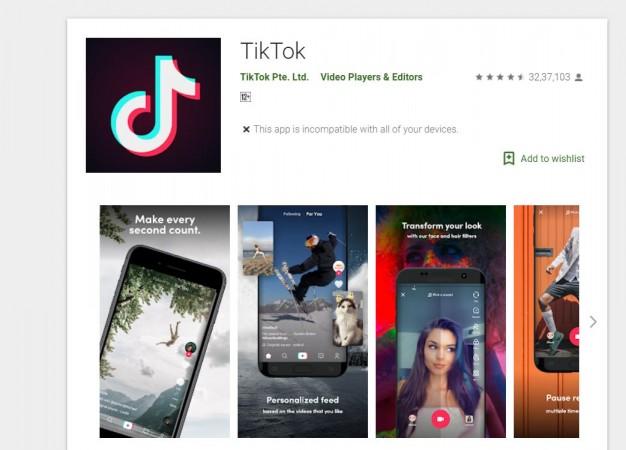In 2019, the annual Earth Hour, which is understood to be the world's largest, environmental grassroots movement to day, is being celebrated across the globe on March 30. It is organised by World Wide Fund for Nature (WWF) to encourage individuals, communities and business organisations to turn off the lights one hour from 8:30 pm and 9:30 pm, as a mark showing concern and work towards the betterment of the planet Earth.
Now, popular short video sharing platform Tik Tok in collaboration with WWF-India is organising a campaign 'Bee4ThePlanet' to persuade its players to embrace sustainable practices such as shun plastics, consume water judiciously and do their part in conserving the local biodiversity.

"We are excited to have partnered with the WWF-India to celebrate Earth Hour 2019, one of the most successful environmental protection related campaigns in the world, with over 180 countries participating. As a part of our commitment to users with fun engaging challenges, through this campaign, we hope to do our part and encourage our users to leverage their talent and creativity to participate and spread the word in raising awareness on the need for biodiversity conservation," Sumedhas Rajgopal, Senior Manager, Strategy and Partnerships, TikTok, said in statement.
As per Living Planet Report 2018, we are living through the Great Acceleration – a unique event in the 4.5 billion-year history of our planet – with exploding human populations and economic growth driving unprecedented planetary change through increased demand for energy, land and water. Over the past 50 years, the global ecological footprint (one measure of our consumption of natural resources) has increased by over 190%. The Living Planet Index suggests that India's ecological footprint per person is less than 1.75 global hectares/person (which is the lowest bracket and is smaller than that of many large countries).
However, India's population which is currently in upward trajectory will face issues near future and its imperative not just for government or corporate companies, but also citizens to learn to consume resource conservatively before it's too late.
With Tik Tok have millions of active users, the company has started a novel #Bee4ThePlanet-hash-tag and 'buzz for the planet' campaign with fun bee sticker, encouraging them to come with interesting videos with information on conservation of important resources and also encourage family and friends to reduce the carbon footprint (means—reduce the impact on environment by consuming less resources) and basically embrace minimalistic lifestyle.

This is a novel initiative by Tik Tok particularly in India, where the former is facing negative publicity, as elected lawmakers in the country are vying for a ban on Tik Tok, as it is accused to ruining Indian culture and inciting pervert behaviour among users.
Nagapattinam's Thamimun Ansari, Member of Legislative Assembly (MLA) of ruling party All India Anna Dravida Munnetra Kazhagam (AIADMK) during a debate at Tamil Nadu legislative assembly (Fort St George) said TikTok was degrading Indian culture, encourages pornography and also causing law and order problem in the state. As the people's representative, it's their responsibility to ban such nefarious mobile app, Ansari added.
Several sections of people are asking for a ban on Tik Tik and we will urge Central government to take action similar to the prohibition of suicidal online game Blue Whale challenge, Ansari noted.
In a related development, Tik Tok has introduced safety feature to curb online bullying. The company has released a new user-defined word filter that blocks any filthy comments in the video-sharing app. Tik Tok users can self-define 30 Hindi and English words and if required they can re-assign the word as and when they want.

















